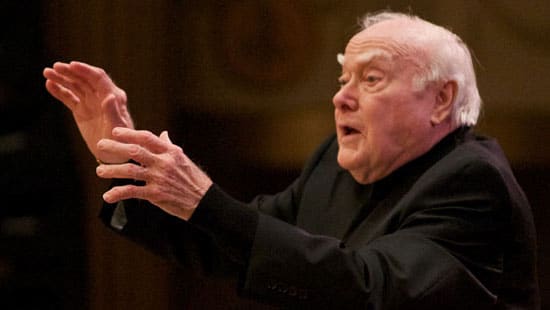America mourns a formative chorus conductor
mainRobert Page, Grammy-winning Director of Choruses for the Cleveland Orchestra from 1971 to 1989 and assistant conductor of the orchestra from 1979 to 1989, has died at the age of 89.
After 18 busy years in Cleveland, where he also conducted the opera company, he moved on to rebuild the Mendelssohn Choir of Pittsburgh from 1979-2005, making it one of the country’s finest. he was co-founder of Chorus America in 1977 and its president from 1990-1993.
Among many triumphs, he conducted the US premiere of Shostakovich’s 13th symphony and made choral settings of Candide arias for Leonard Bernstein.

Fine obituary here.





Comments